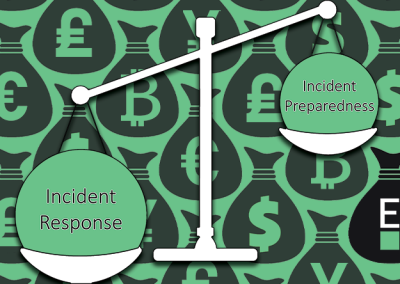“Only when the tide goes out do you discover who’s been swimming naked.”
–Warren Buffett
“Not your keys, not your coins.”
–Unknown
In business, there are a lot of risks that can be safely endured while the cash is rolling in. It’s only when conditions turn unfavorable that business model assumptions are put to the test.
The crypto bull market of 2021 saw that cash roll in and made everybody look like an investing genius. Then the bear market arrived, and with it, a reckoning.
During the bull market, the risk of altogether “losing” one’s cryptoassets seemed limited to the loss of one’s private keys due to theft or technology failure.
The bear market introduced another way to lose one’s cryptoassets: insolvency.
It’s been interesting to watch the vocabulary and institutions of DeFi increasingly come to resemble those of TradFi, particularly when it comes to securities trading (bear versus bull market being a prime example). So much so, that it’s not unreasonable to have assumed that the regulatory bodies governing TradFi also operated in parallel with Web3.
Indeed, in the US, we’ve all spent our entire lives aware of – though hopefully never having to take advantage of – FDIC and SIPC deposit insurance. The idea that the federal government is there to instill confidence in our financial system by protecting cash and securities deposits against the failure of the institution that holds them is baked into the world view of investors from the beginning. So it’s unsurprising that many have been left assuming that the same applied to their crypto holdings.
This is a situation made even more complex when many crypto exchanges provide banking services to their clients, and these accounts often are in fact FDIC insured – but only those fiat accounts, not the crypto accounts. Thus, when the then-CFO of FTX.US tweeted in August 2022: “Direct deposits from employers to FTX US are stored in individually FDIC-insured bank accounts in the users’ names,” referring to the exchange’s USD accounts, it’s understandable why context-lacking investors might misconstrue this, and why the FDIC might send a sternly-worded letter demanding they cease and desist making “false and misleading statements.”
Can you believe just a few months ago, that’s what passed for a crisis at FTX?
Clearly, the FDIC takes this topic very seriously and recognizes that investors consider federal deposit insurance an advantage when weighing their options.
As the bear market raged, last summer opened with a one-two punch of bankruptcy filings by crypto trading platforms Voyager and Celsius – a pair of seemingly well-established firms rendered insolvent by from one day to the next. In each case, withdrawals were unexpectedly frozen and creditors swept in to lay claim to the crypto holdings account owners understandably thought were theirs.
Only when the tide goes out do you discover who’s been swimming naked. And that was just the start as we now know.
This led to many uncomfortable conversations surrounding just who does “own” non-custodial cryptoassets. In court, lawyers for Celsius pointed to an unambiguous clause in their terms of use, declaring interest-bearing account holders grant the firm all rights and title to their digital assets.
Not your keys, not your coins.
As a Lloyd’s of London coverholder, Evertas is the first and only dedicated provider of crypto insurance. Having been born in a bull market era, Evertas was conceived as a source of protection of cryptoassets against loss due to hacking, theft or technical failure. When the market turned, so did crypto’s risk profile, and Evertas responded by modifying our underwriting process to require, among other things, customer and corporate funds not be commingled, trust arrangements that make clear the customer — as opposed to creditors or investors — owns their assets, and an active and independent board of directors.
This is another example of how the insurance industry’s arrival on the scene of an emerging sector yields benefits beyond the ability to make consumers whole in the wake of a covered event. We also offer the benefit of reducing the risk of covered events occurring to begin with and reducing the damage they cause.
Evertas is an A+ rated insurer built by cryptonatives who thoroughly understand the evolving risks of Web3. Should the bear market endure and additional failures follow, being able to point to an Evertas policy will become a key competitive differentiator. Contact us to learn about how coverage by Evertas can be leveraged to your advantage.




